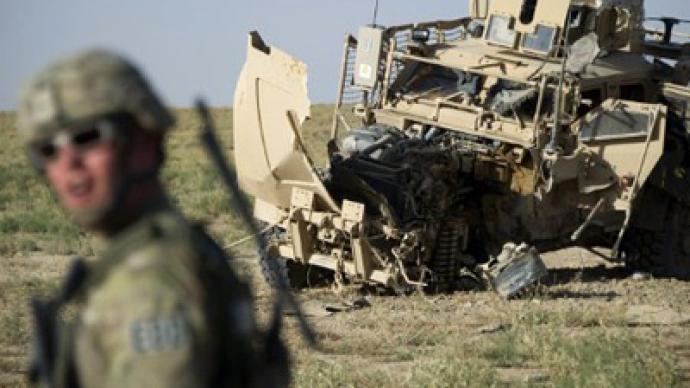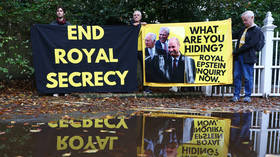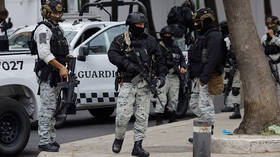US war on terror: the longest-ever knee-jerk reaction

The war on terror has resulted in a decade of US military campaigns overseas. But was it a defensive reaction - or a willing political act?
“Policymakers have a right to their own opinions, but not their own set of facts.”These words belong to former CIA director George J. Tenet, the man many accuse of being indirectly responsible for the invasion of Iraq in 2003. It is thought that the Bush Administration made the decision to deploy troops based on intelligence gathered by Tenet and his agency. But in his book “In the Center of The Storm”, the former director claims President George W. Bush and Vice President Dick Cheney were determined to attack Saddam Hussein long before the tragedy of 9/11 – and frequently embellished intelligence reports in order to get support for the war. The politicians’ desires had perfect timing, too. The post-9/11 nation was gripped by fear and insecurity, so that many readily believed that there were weapons of mass destruction in Iraq. Moreover, a Gallup poll taken in 2002 showed that most Americans believed Saddam Hussein was responsible for the WTC attacks themselves. And their fear was used to fund the military campaigns US troops led around the world.An argument can be made for the US invasion of Afghanistan at the time – it was a direct military response to an attack. But what began as a reaction was taken by the policymakers and changed into an action – one of military aggression and nothing shy of a hostile takeover. And as the days went by, bringing more and more casualties and taking away taxpayer dollars with it, many began to question these actions, wondering why one day in the United States justified 4000 days in Afghanistan, with hundreds of soldiers and civilians dying daily – and the fact that not one of the 19 people directly involved in the 9/11 attacks was actually from Afghanistan.
Not only did the “world change” on that day, but the lexicon of that world changed as well. Phrases like ‘war on terror’ and ‘axis of evil’ became the new stereotypes of American foreign policy. Al-Qaeda went from legitimate enemy to a scapegoat-like collective term for anything the White House and Pentagon wanted to achieve. More money? Yes, it’s necessary to continue the war on terror. More troops? Yes, to battle Al- Qaeda and prevent attacks on American soil. Since 2001, the military’s cumulative spending has reached a staggering $6 TRILLION. The war in Iraq has so far cost the United States $140 billion just in interest. Many were content to blame all this on the war machine of the Bush administration, and many Americans hoped that with Barack Obama a new, more peaceful, era would begin. But despite their differences, there are just too many eerie similarities between the two. Both men sought United Nations approval for their attacks – and each justified their pre-emptive attacks on “humanitarian” grounds. Both called their actions ‘pre-emptive’ – saving the world from weapons of mass destruction purportedly hidden by Saddam Hussein, and a potential slaughter in Libya. Interestingly enough, both Iraq and Libya have vast oil reserves, both Hussein and Gaddafi were very much anti-Israeli in their policies and neither Bush nor Obama presented clear-cut exit strategies for their campaigns. The operation to kill all-time super villain, Osama Bin Laden, carried out by Navy SEAL commandos inside Pakistan with no notification to a supposed ally, was typical of the “war on terror”. Still, it gave hope to many, hope of bringing this costly – every possible meaning – war to an end. But instead, the FBI and Interpol have replaced Bin Laden with Gaddafi on their wanted lists as the devil du jour. And the war goes on…"A nation that continues year after year to spend more money on military defense than on programs of social uplift is approaching spiritual death,”said Dr Martin Luther King. He was speaking about the Vietnam War, but it is still appropriate today, because "the greatest purveyor of violence in the world today" – Dr King again – is still waging its clichéd war on terror – and does not look likely to stop.
Katerina Azarova, RT














